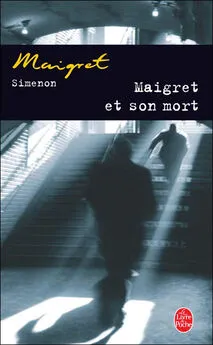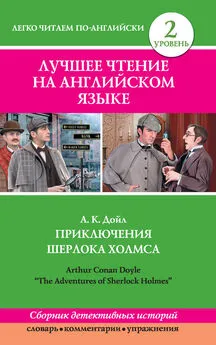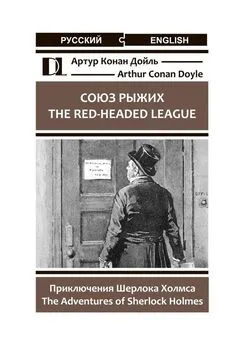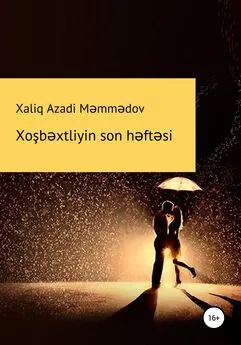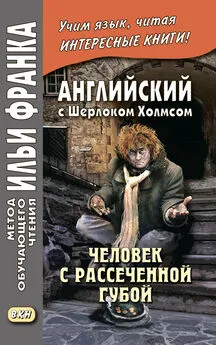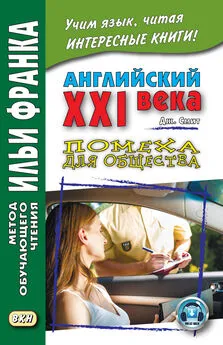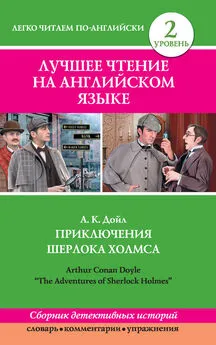John Lescroart - Son of Holmes
- Название:Son of Holmes
- Автор:
- Жанр:
- Издательство:New American Library
- Год:2003
- ISBN:9780451208750
- Рейтинг:
- Избранное:Добавить в избранное
-
Отзывы:
-
Ваша оценка:
John Lescroart - Son of Holmes краткое содержание
John Lescroart offers an engrossing historical mystery that takes us to a small French town in the dark days of World War I-where the rumor is that Auguste Lupa is the son of the greatest detective of all time. And his mysterious legacy may come to light as he attempts to solve the baffling murder of an intelligence agent...
Son of Holmes - читать онлайн бесплатно полную версию (весь текст целиком)
Интервал:
Закладка:
The psychological babble was fine in its place, and yet the fact remained that Georges had not even been in the same room when Marcel had taken his last draft. And no service in the world would hire a man with Georges’s limp—it was simply unheard of.
A recognizable square loomed ahead of me in the drizzle, and I found myself suddenly almost too dispirited to keep moving toward it. What was the point of going home? What, indeed, was home? Another hollow concept such as loyalty, duty, honor—all fine words to fight and die over, but nothing to take too seriously.
But the old discipline directed my footsteps just as my training led my thoughts back to the issue. The stakes here were nothing less than survival, and sentiment must be viewed only as a dangerous luxury, an enemy as deadly as any I would ever face.
Everyone . . .
How could Fritz have lived in my house for a year without causing me a moment of suspicion? And yet who was more ideally suited to keep tabs on my movements and report on them? No one had had a better opportunity to place poison in Marcel’s bottle, except of course Lupa, who had been sitting in that seat. But my trust in Lupa had proven itself well grounded. Or had it? Perhaps he’d kept me alive last night for another, future purpose. Perhaps in some other game, I was a bishop and Marcel a quickly expendable pawn—perhaps and maybe and again perhaps. My mind was beginning to reel with uncertainties, with possibilities.
Everyone . . .
And even Tania . . .
No! Not Tania! Not the only woman I had ever loved. It was unthinkable. Even if it killed me, I would not suspect her. I shook my head, trying as best I could to purge the poisonous thought . . . ... and looked up to find myself in the middle of the square, still confused and lonelier than I had ever felt before.

The rain became fierce, and again I found myself soaked. In no mood to continue an already disagreeable walk, I hired a carriage back to my home. Fritz greeted me at the door with undisguised concern, tempered with reproval.
“Are you well, sir?”
“Damn it, Fritz, no. No, I’m not well. I’m drenched, my clothes are ruined for the second time, I’m tired, and my oldest friend has been murdered in my house. No, I’m not well at all.”
He stood back and silently took my clothes.
“I’m sorry to snap,” I said, “but it has been a trying time.”
“Monsieur Lupa came by this morning and told me you were in good hands. Madame Chessal went home after breakfast. Would you like some tea or brandy?”
He handed me my robe, and I went into the front room to sit before the fire, where I brooded for a while about my age until Fritz came back with tea laced with brandy. After one cup I fell off to sleep.
Fritz woke me again when it was already dark, served me a small meal of coddled eggs with sherry and black butter, and suggested I retire, which I did.
5
Ironically, but predictably, the sun blazed forth on Friday morning for Marcel’s funeral, and found me well rested. Fritz always rose at dawn and, when the weather permitted, breakfasted by himself in the arbor. Since I was rarely awake by then, he justly considered this his time, and I was loath to disturb him, so I poured myself a cup of espresso before walking out. I was ashamed of myself for the way I’d acted the day before. These days at home had weakened me. I resolved to shake myself out of this softness.
I walked to the arbor in my robe and bare feet, enjoying the feel of the wet grass. Fritz sat on a cushion that he’d brought out for the stone bench, eating a brioche with some ripe Brie and drinking his coffee. Already, at seven o’clock, the chill had gone from the air. The house and arbor had a striking, newly washed quality. A slight mist rose from the shingles of the roof.
“Good morning, Fritz. Don’t get up. No muffins for me. I’ll just be having coffee in the mornings for a while.”
We sat for a while without speaking. The stream murmured peacefully. At such a time it was hard to imagine the trenches, the carnage, a Europe—perhaps soon a world—at war. Yet it would be fatal to be lulled, to allow oneself to forget.
Fritz pulled me from my reverie after he’d drained his cup. “You’re going to the funeral?”
“Yes, of course.”
“Madame Chessal, then, asks if you’ll pick her up on the way.”
In a half hour, I had dressed and gone to the old servants’ quarters, where I kept my automobile, a Ford from America that I’d been allowed to keep after mobilization, though there’d been a substantial and very local “tax” for the privilege. The car started without any problem, and within minutes I pulled up to Tania’s house. She sat out on the front patio of the long, light blue structure, nibbling halfheartedly at her croissant.
“Good morning,” I said.
She stood quickly and came over to embrace me. She looked tired.
“But you,” she said, “where did you go that Monsieur Lupa wound up taking care of you? Are you all right?”
I patted her shoulder. “I’m fine. I think I just needed to forget, or perhaps to remember. At any rate, to lay Marcel to rest. I’m perfectly well now. Come, are you ready? You don’t look as though you’ve had such a wonderful night yourself.”
She took my arm, leaning a fragrant head for a moment against my shoulder. She sighed. “Sometimes we’re so alike it’s frightening. I couldn’t stop thinking about poor Marcel. Last night I’m afraid I drank rather too much wine. Danielle had to put me to bed.”
“Fritz did the same for me.”
We got into the car and drove to the cemetery. The service wasn’t due to begin until ten o’clock, so we had nearly two hours to walk through the surrounding countryside and compose ourselves. I decided that my suspicions about Tania on the day before had been ridiculous, but resolved not to say anything unnecessary to anyone until this mess had been cleared up.
When we finally walked down to the cemetery proper, Georges and Paul had arrived. Paul looked especially out of place in a dark suit. In the time that I’d known him, I couldn’t ever recall having seen him dressed even semiformally before. We joined them by the gate.
Gradually, some other of Marcel’s friends and relatives began to appear, and the four of us who had been in the room that night found ourselves effectively ostracized. Henri and his wife arrived among a small group who left them immediately after they’d passed the gate. Madame Pulis, whom I’d never met, was weeping, and Tania walked over to comfort her. Henri joined the rest of us.
After a few moments of uncomfortable small talk, we walked over to the grave. Marcel’s parents had died long ago, and he hadn’t been married. I had probably been his closest friend, and yet the others around the grave treated all of us as though we’d been his enemies. We stood in a knot while the usual forms were followed and, when the body had been lowered, were the first to turn and go. Madame Pulis had been constantly crying throughout.
Georges walked crookedly next to me. “Rather ugly, wasn’t it?”
“Yes,” I said, “but I don’t suppose you can blame them.”
Gathered around my car, we stopped to talk. Tania packed Madame Pulis into their carriage and walked pensively back.
“I can’t understand those people,” she said. “Henri, your wife . . .” She stopped.
“I know, I know. I suppose I shouldn’t’ve brought her along. She’s so emotional. She was fine until we met that other group. They asked if I’d been there Wednesday and acted as if . . . well, you know. And she’s very sensitive to that sort of thing. You’d think one of us killed him, the way they were acting.”
Paul was seated on the running board, his tie now off, his coat across his legs. “It appears,” he said, “that one of us did.”
“Well, I didn’t,” stormed Henri. “I goddamn well didn’t!”
“I didn’t say you did, Henri. Calm down. But it isn’t unreasonable to assume that one of us planted that poison now, is it? You might as easily assume that I did it.”
I looked sharply at him.
Georges spoke up. “Have the police mentioned to any of you their suspicions? Motives, hints, clues?”
Everyone said no.
“The point is, they mentioned to me . . . well, we shouldn’t go around picking each other to pieces. They mentioned that it seemed to them to be at least as good a bet that it was suicide.”
“That’s absurd,” I said. “I’d been with him most of the day. He hadn’t been depressed. In fact, he’d been looking forward to the summer.”
“Well, the alternative, of course,” said Paul, standing up, “is that one of us did it.”
“Again, not necessarily,” said Georges.
“What do you mean?”
“Not necessarily one of us. One of ‘us’ isn’t here.”
“Lupa!” said Henri.
“It does seem strange he didn’t come,” said Tania, “though some people simply cannot abide funerals.”
Paul laughed. “No one likes funerals.”
“My wife does.” Henri shook his head, and we all laughed as the tension broke. “Speaking of . . .” He smiled at all of us and began to walk to the carriage. Tania called after him and asked if she might go with him, since I’d told her that I had business in St. Etienne.
The three of us remaining watched them move off slowly, and I asked Paul if he needed a lift. Georges said he had some deliveries to make at St. Etienne and would I mind if he accompanied us? Since he had to pick up his supplies, we all agreed to meet later in the afternoon, and I drove off alone toward La Couronne. On the way, I remembered the beer I’d promised Lupa and detoured back by way of my home.
Chez moi, I changed into something more comfortable and asked Fritz if he’d mind arranging the delivery of several cases of the beer to Lupa. Since it was lunchtime, Fritz insisted I stay and have something to eat, and he quickly prepared a small plate of ham croquettes, fresh bread, and a delicious paté made, he said, from the liver of a wild hare. Since he didn’t hunt, I had reason to doubt him, though one of the neighborhood boys might have come around with his catch. Still, wild hare or not, it was excellent. I had one of my own beers to overcome my lurking fear about them, and during the first few sips, Fritz looked at me with real anxiety. I smiled.
“They don’t produce cyanide of themselves,” I said.
He didn’t think that at all funny and crossed back into the house, where he could eat in his cool and shaded kitchen, washing everything down with his daily demi-bouteille of uncomplicated wine.
I decided it would be a waste of time to see Lupa before I’d been to St. Etienne, and so I found myself for the second time that day with some spare time on my hands. I walked slowly up the stairs to my room and reached into the false bottom of my lower left-hand drawer, taking out my pistol.
It was an older but nevertheless effective weapon, excellent for close quarters and concealment. I don’t know why I’d stopped wearing it when I’d returned home this last time. That had been foolish. It was a derringer, its tiny butt overlaid with carved ivory. For all its beauty, it was a terribly powerful weapon—the same gun, though of course an earlier model, had been used to assassinate the American President Lincoln. I carried it in a special holster that I wore under my shirt. Up in my room, I began to clean and oil its few moving parts, so that by the time I left the house, I felt finally prepared for the work I might have to do.
Читать дальшеИнтервал:
Закладка:


